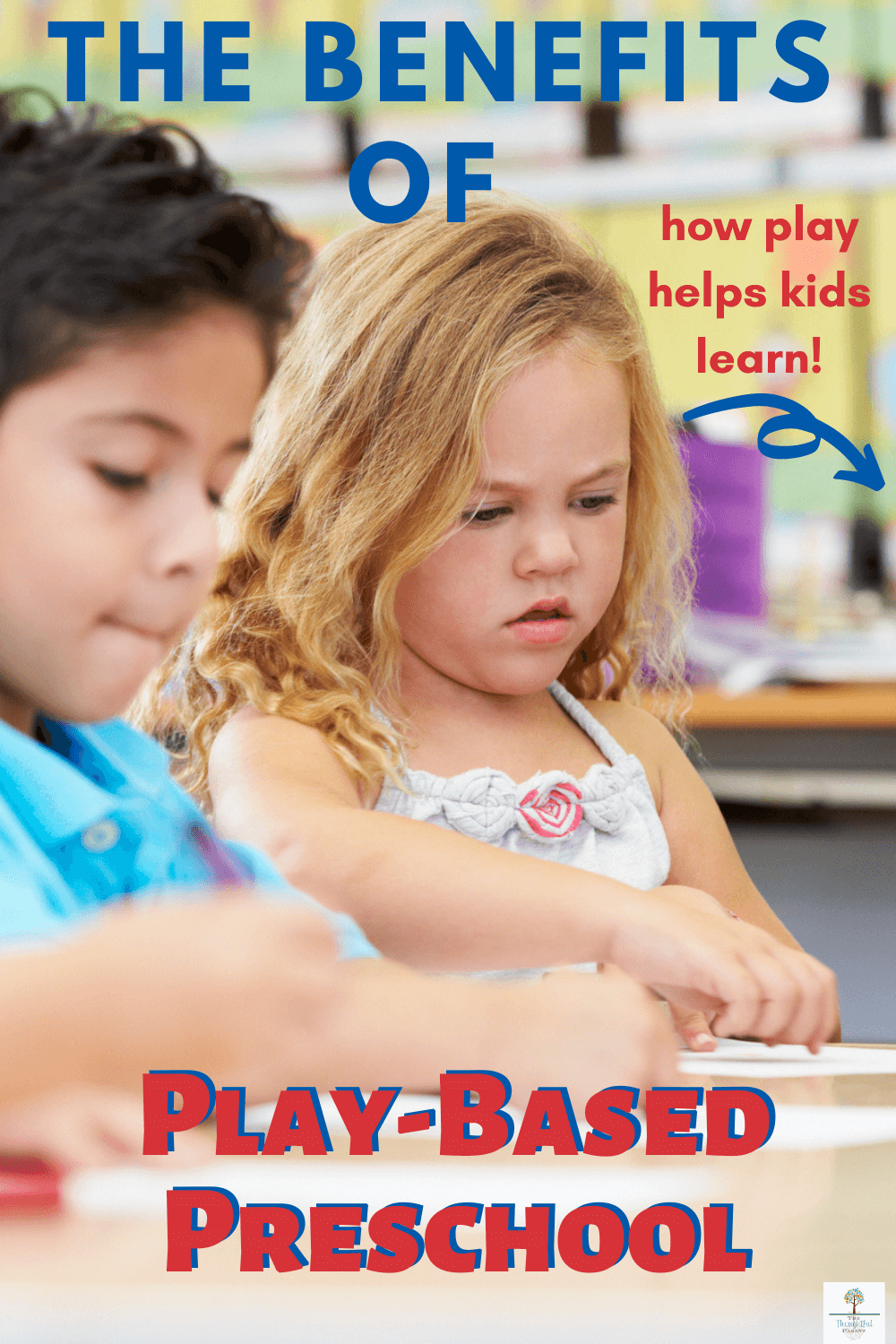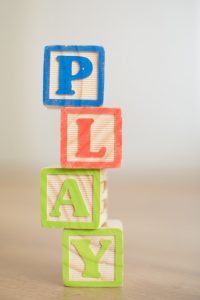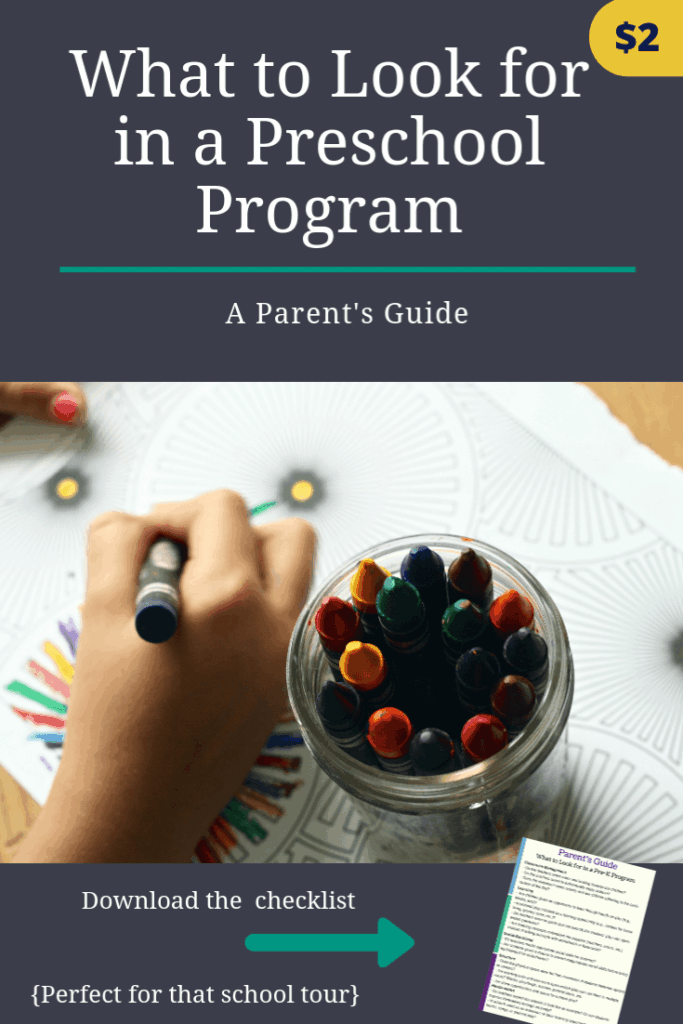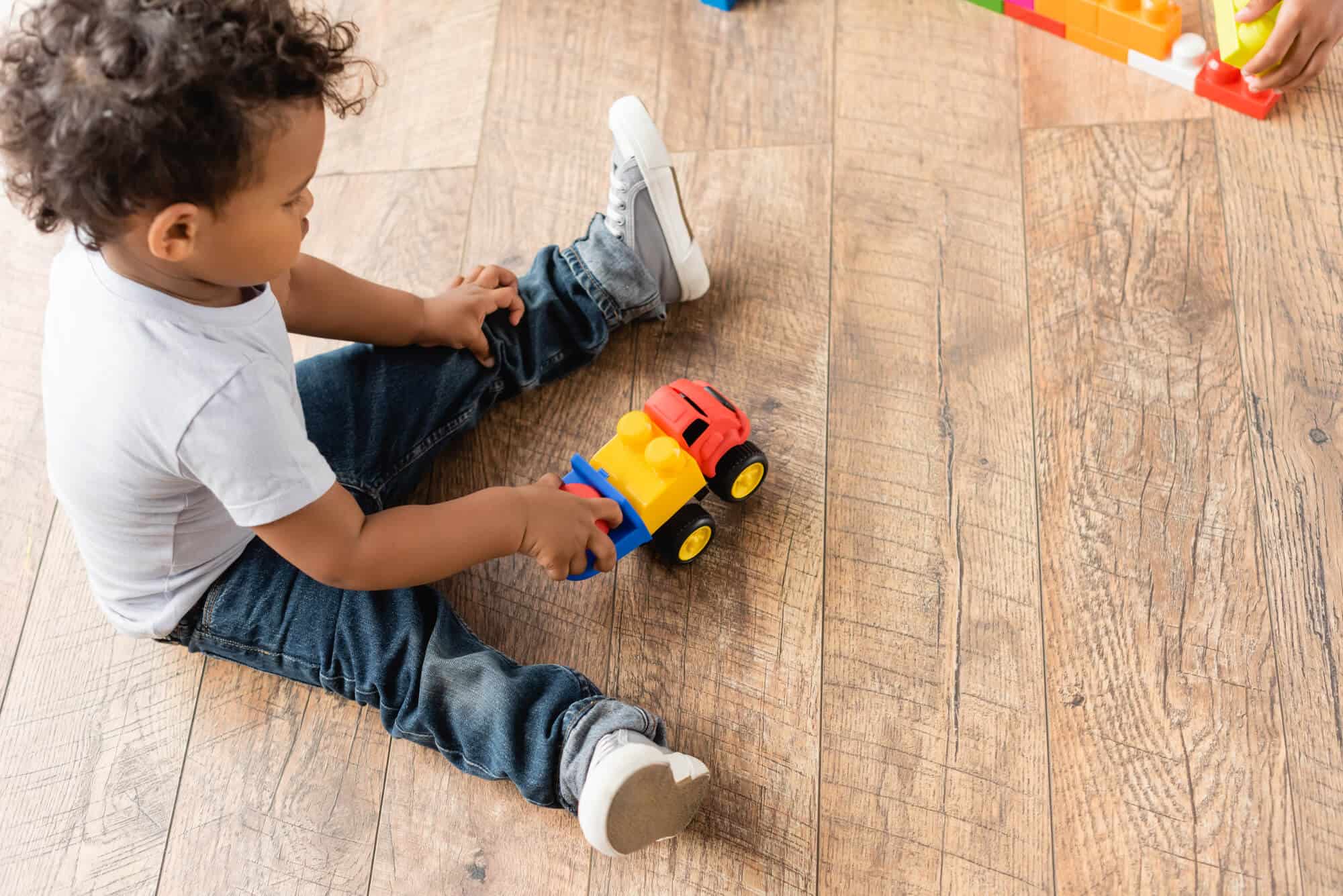Sneak peek: There are many misconceptions when it comes to understanding play-based learning in preschool. While pressures remain to enroll kids in early academic settings, kids lose something very valuable when we push too hard.
In recent years, there has been a lot of talk in the media about rigorous, academic preschools meant to ensure a child’s future academic (if not career) success. In this atmosphere, play-based learning has been overlooked and misunderstood. This has forced parents to really consider why preschool matters for children’s development. Is preschool about academic preparation or social-emotional learning?

*This post contains affiliate links. Purchasing through these links provides me a small commission (at no added cost to you).
First, there was the story of a woman in New York who sued a preschool when she felt it did not adequately prepare her daughter for a high-stakes intelligence test required to enter a competitive private school. She claimed the preschool was not a school, but simply a big “playroom.”
Then there was the article in the New York Times about Kumon and other tutoring companies catering to younger clientele (as young as 2). This prompted what I felt was a very thoughtful piece by Ellen Galinsky who offered a more middle-of-the-road approach to young children’s education. She aptly points out that while children do learn skills from the Kumon-style approach, the key component is not so much the flashcards and puzzles, but the presence of an engaged adult who is eager to teach and learn. In the case of Kumon, this adult happens to be a “teacher” rather than a parent.
What, really, then, is the role of play-based learning in preschool? Is there a value in emphasizing child-led play over rigorous academics?
What is Play-Based Learning?
Simply put, a play-based learning approach emphasizes kids’ innate motivation to play as well as their endless curiosity. In contrast to direct instruction, in which a teacher is conveying information to students and they are passively listening, play-based learning takes a more interactive approach. Students are encouraged to play and the teacher acts more as a guide to foster a type of deep play in which kids learn concepts.
For example, while kids are playing in a pretend grocery store setup, a teacher might prompt students to consider ideas like: “Which do you think weighs more—an apple or a banana?” or “How much does that box of cereal cost” or role-playing ideas like, “What’s the name of the person who checks out the groceries?” While these may seem like simple questions to an adult, for kids, these types of prompts help them deepen their thinking. In the process, the teacher is helping kids think through real-world concepts regarding math, volume, money, and more.

Why is Play-Based Learning in Preschool Important?
More and more research is showing how children who lack social skills often fail to thrive in school, even though they are academically capable, because the social aspect is so important. Why is this?
Interaction with peers is one of the ways children learn not only learn how to “play nice” but it is how they learn to control their own emotions and behavior. Learning self-regulation is one of the most important reasons why play-based learning in preschool matters for development. This self-control, in turn, is one of the best predictors of academic and career success. Some studies have shown that training in social and emotional skills is as beneficial as academic training in helping students who are struggling in school.
Furthermore, developmental scientists will tell you that young children learn concepts of math, sciences, and language better in a play-based preschool than in a “drill-and-kill” rote learning setting offered by many “academic” preschools, due in large part to the social interaction that is involved in play-based learning.

Why the Rush to Academics?
Beyond the research, however, is the question of why? Why do many parents feel the need or pressure to enroll their young children in such academically rigorous preschools? Although a lack of understanding of child development may be part of the issue, I think other factors must be at play.
One issue may be fear. Many parents may be fearful of what the future hold for their children’s economic and career futures. They may feel that a rigorous academic approach to early education will set them on the path to career success.
It is a complex issue. One thing that research has shown us is that an emphasis on academic skills to the exclusion of all others does not prepare our kids well for the future. A recent study of Google employees found that the majority of their top performers earned their positions not only for their coding or engineering skills but for their social-emotional skills as well. Most of them were ranked high in skills like communication, cooperation, and empathy for coworkers.
Once again, this shows the need for a balanced approach to preschool learning. A play-based learning approach helps meet students’ social-emotional and academic needs…plus it’s a lot more engaging and fun for kids.

Play-Based Learning Philosophy
Additionally, I do feel that we have lost some understanding of the subtlety of child development. By that, I mean that there seems to be an emphasis on direct results, black-and-white answers, etc. The interesting thing about child development is that it is subtle in so many ways. If you watch a child carefully over many months (if not years) you will see them gradually learn concepts, language, and ideas, but you have to watch closely. You will not see quick results overnight with most aspects of child development.
Related reading: What to Look for in a Preschool {includes a printable checklist!}
I think this is why play-based preschools are not as attractive to many parents. Over time, a child will learn about concepts of volume, weight, and density while playing with water and sand on the playground. This type of learning, however, is much more subtle than a child being able to recite some flashcards that they reviewed for a week straight.

A child in a play-based preschool may not be able to tell you straight out that 2 + 2 = 4, but I imagine if you asked them to pick up 4 balls, they would know what to do. I admit that seeing a child recite answers to questions that you’ve reviewed with them is somewhat gratifying to us as adults, but is the other, more subtle type of learning any less valuable? To me, this is the key to why play-based preschool matters–kids get to explore their interests, not just those put forth by adults.
When my son was about 2 years old, I saw evidence of this difference in learning. I had been working with him on learning colors. I’ll point out things at the store and name their color or mention the colors of animals, etc. Now, if I straight out ask him what color an object is, he will inevitably get it wrong. However, if he wants an object and is pointing to it and asking for it, he will almost always call it the correct color (“blue one”).
There is something to be said about a child’s intrinsic motivation to learn what is important to them, not necessarily what’s important to us. Experience builds knowledge, not flashcards.
Related Resources





Leave a Reply